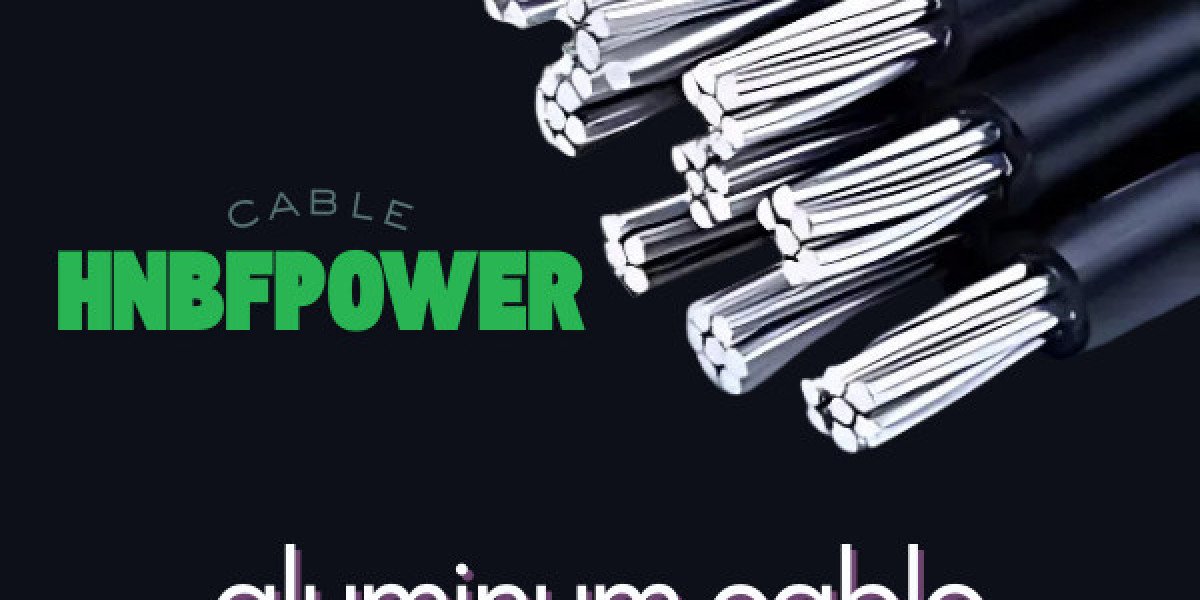Aluminum cable plays a vital role in the power transmission industry, ensuring electricity flows efficiently from power plants to cities, factories, and homes. Known for its lightweight structure and high conductivity, aluminum cable has become a preferred choice in modern electrical networks. In this guide, HNBFpower explains the roles, specifications, applications, advantages, and how to buy aluminum cables for your power projects.
The Role of Aluminum Cable in Power Transmission
Aluminum cables are essential conductors used to carry electric current over long distances. Their primary role is to reduce energy loss and maintain system reliability. Because aluminum is lighter and more cost-effective than copper, it allows power utilities to build transmission systems that are both efficient and economical.
In high-voltage transmission lines, aluminum cables—often reinforced with steel—deliver electricity across regions while withstanding environmental stress, including wind, heat, and corrosion. This makes them a key element in national power grids and renewable energy networks.
Key Specifications of Aluminum Cable
The specifications of aluminum cables can vary depending on the power capacity and type of transmission system. However, general specifications include:
Conductor Material: High-purity aluminum (or ACSR – Aluminum Conductor Steel Reinforced)
Voltage Range: Suitable for low, medium, and high-voltage applications
Stranding: Multiple aluminum strands twisted for flexibility and strength
Temperature Rating: Up to 90°C for continuous operation
Insulation Type: XLPE, PVC, or bare (for overhead lines)
Standard Compliance: ASTM, IEC, and other international standards
HNBFpower manufactures aluminum cables with strict quality control to ensure consistent performance under demanding electrical loads.
Applications of Aluminum Cable
Aluminum cables are used in a variety of electrical and industrial applications:
1. Overhead Transmission Lines
Aluminum conductors are ideal for overhead systems due to their light weight and resistance to corrosion.
2. Distribution Networks
Used in local utility grids to supply electricity to residential and commercial areas.
3. Industrial and Construction Projects
Power supply for factories, infrastructure, and high-rise buildings.
4. Renewable Energy Systems
Widely used in solar farms and wind energy projects for efficient power distribution.
5. Underground Power Lines
Insulated aluminum cables are used where overhead installation isn’t feasible.
Advantages of Using Aluminum Cable
There are several reasons why engineers and project managers prefer aluminum cables:
Lightweight: Easier to install and transport compared to copper.
Cost-Effective: Offers a lower material cost while maintaining good conductivity.
Corrosion Resistant: Performs well in outdoor and marine environments.
High Conductivity-to-Weight Ratio: Ideal for long-distance transmission.
Durability: Can withstand harsh climates and mechanical stress.
Eco-Friendly: Aluminum is recyclable and contributes to sustainable energy systems.
These benefits make aluminum cables a reliable choice for both industrial and utility-scale applications.
How to Buy Quality Aluminum Cable
When purchasing aluminum cable, it is important to consider a few key factors:
Determine Power Requirements: Identify the voltage and current rating suitable for your project.
Choose the Right Type: Select between bare, insulated, or ACSR cables based on the application.
Check Certifications: Ensure compliance with international standards like ASTM or IEC.
Partner with a Trusted Manufacturer: Choose a supplier with proven experience in the power industry.
HNBFpower provides high-quality aluminum cables designed for safety, performance, and long service life. Our team assists clients in selecting the right conductor type and size for efficient power transmission systems.
Conclusion
Aluminum cables are the backbone of modern power transmission systems. Their combination of conductivity, strength, and cost efficiency makes them indispensable in today’s energy infrastructure. Whether you’re building a new power grid or upgrading an existing one, HNBFpower delivers the aluminum cable solutions you can trust for long-term reliability and performance.








